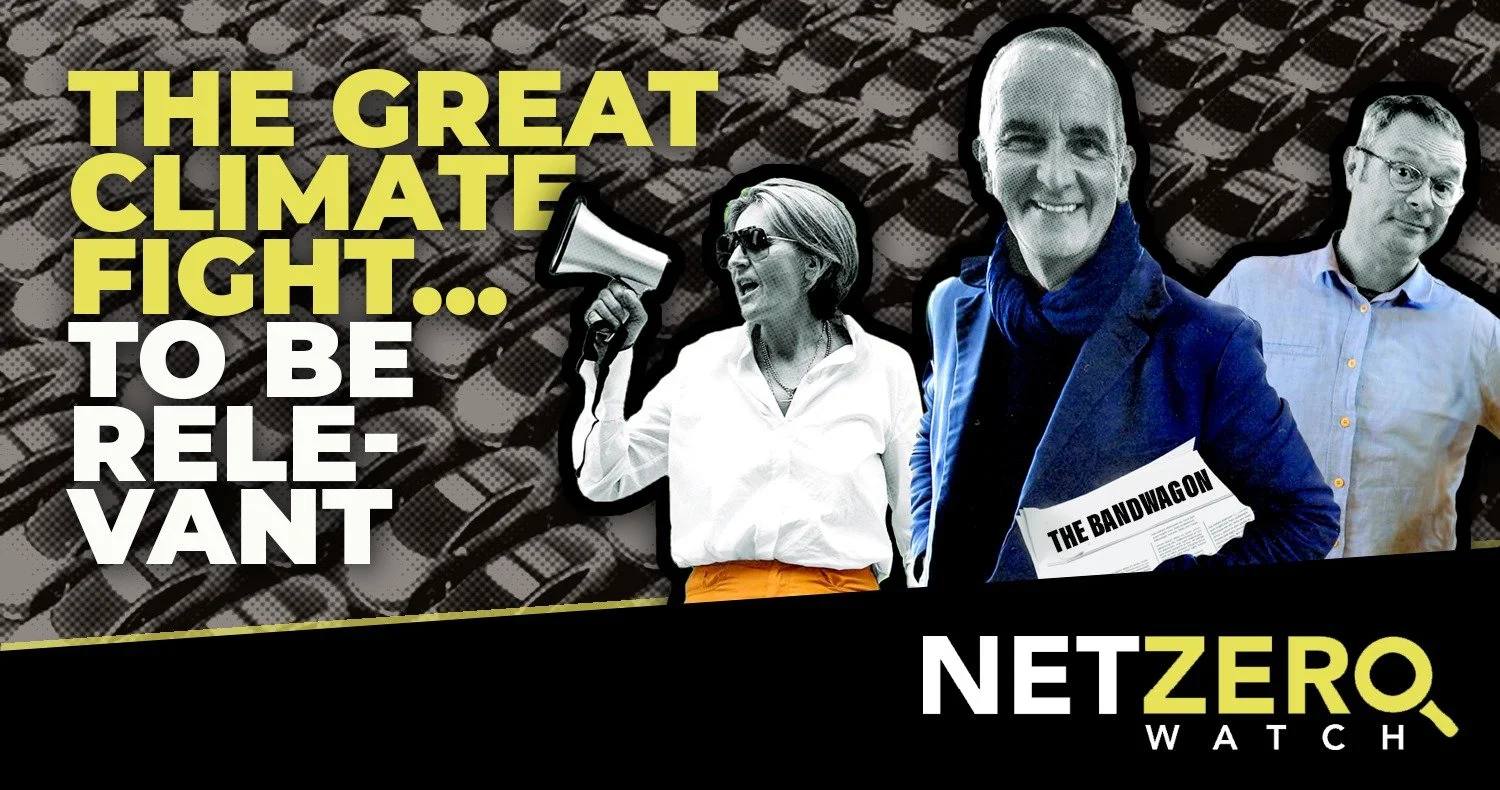The Great Climate Fight… to be relevant
A review of ‘The Great Climate Fight’ which was broadcast on Channel 4. By NZW’s Head of Policy, Harry Wilkinson.
There is a certain kind of celebrity who is so worthy they can’t contain it. For Hugh Fearnley-Whittingstall, Mary Portas and Kevin McCloud that meant making a thought-provoking new documentary on climate change. Sorry, the climate crisis. We knew it was going to be thought-provoking right from the start because Kevin made some funny faces.
The premise of the show was very simple. Climate change is cheap and easy to solve but that’s not happening because the Government. We were presented with some graphs appearing to show that cost of wind powered electricity was now significantly cheaper than gas-fired electricity – which is a comforting myth to believe in, if you ignore the cost of intermittency and the huge carbon taxes slapped on gas power stations. Even headline strike prices of offshore wind are now surging – a recent development that the documentary makers conveniently left out.
Nevertheless, Hugh Fearnley-Whittingstall has an earnestness that makes him stand out as the most sincere and genuine of the three presenters. It is touching at times, but hopelessly naïve. The documentary comes across as a sixth form Geography project which thinks it has a big idea – but the teacher hasn’t told them they have heard it all before.
So many of its main lines are the same ones used repeatedly by the Government and the green policy establishment for years. These revolve around the idea that there are all these green economic opportunities around Net Zero and we’ll all be better off (if we just ignore the costs and challenges). As it happens, this has been the political consensus for well over a decade and just look where it has got us.
We see the recycled Carbon Brief line about David Cameron’s famous ‘cutting of the green crap’ supposedly costing us £3.1 billion last winter in additional gas import costs. But this ignores the cost of the additional subsidies and insulation measures that would have been incurred, and the impact of more unreliable wind generation on the National Grid.
Green lobby talking points come up so frequently that it is difficult to avoid the suspicion that Big Green was somehow involved in the production of the programme. In this alternative universe we hear about the “generous treatment of the oil and gas sector” – a sector, let’s remember, which is about the most highly taxed in the country and was even before the introduction of the so-called ‘windfall tax’.
The Climate Change Committee’s 6th Carbon Budget is presented as a holy document and the presenters resort to smuggling a copy of it into Rishi Sunak’s Yorkshire family home with the help of an internet prankster. A desperate denouement for what is a 2-hour long climate version of Harry and Paul’s famous “the bankers, the bonuses” sketch, albeit far less entertaining for all the extra minutes.
Craig Mackinlay is the only alternative voice we hear on the programme, but he is given just a matter of seconds after which his arguments are immediately disparaged. The Channel 4 whose remit was to promote debate and alternative perspectives is sadly a thing of the past. A programme which genuinely showed both sides of the climate policy debate would have been fascinating, but this was never going to be that.
This was a programme whose timing could hardly have been worse. Its totemic idea that ‘wind is cheap’ was crumbling just as it aired; thanks in part to the excellent work of my colleagues at Net Zero Watch in exposing the high costs of wind energy, and the embarrassing announcement from the Government of much higher new subsidies for wind power. Irrelevant and outdated from the moment it was broadcast, it stands as a record of green hubris.

